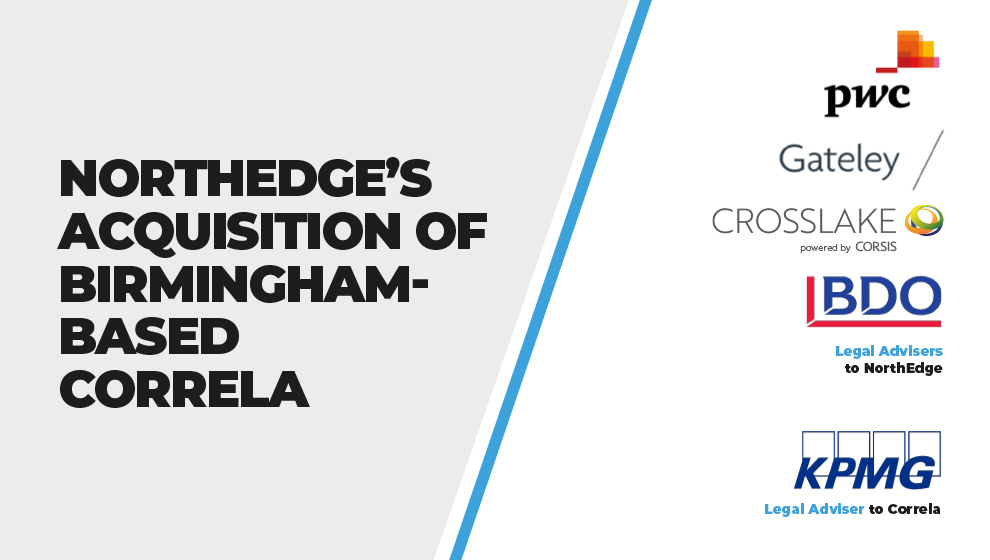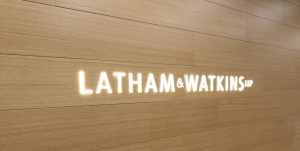Private equity firm NorthEdge has acquired Birmingham-based Correla, a technology and data services business aimed at the sustainable energy centre.
The acquisition will see NorthEdge acquire Correla following the divestment of the subsidiary by the Gas Industry’s Central Data Service provider Xoserve. The divestment will see Xoserve become a specialised contract management and assurance company as part of a restructure of its existing operations. Correla will continue to deliver services back to Xoserve through a commercial contract. The deal will also see Correla invest in its data platforms and expand into alternative energy markets through organic growth, alongside the potential for acquisitions.
An Interview With Tim Dineen, Lead Practitioner & Interim CxO at Crosslake Technologies
Describe your involvement in tech due diligence side of the deal.
Subject-matter expert with responsibility for the successful execution of the due diligence examination. This includes challenging unverified or optimistic assertions; reconciling related, but independently provided information; and aligning my colleague’s expert inputs to ensure that we provide a coherent overall report.
Why is Crosslake ideal for acquisitions of this kind?
Crosslake only staffs its technical due diligences with senior industry experts. This ensures that all our practitioners have close familiarity with both the technologies, industry contexts, related pitfalls and nuances that are often material to such deals. An expert-led principle also enables our teams to provide qualified and (if needed) robust questioning to in-house experts who may have operated for many years without peer challenges.
We follow our assessments with detailed reports that are accompanied by thorough explanatory read-out calls. These provide our clients with an opportunity to clarify the extent of the values that were identified and the potential impacts of risks that were observed, enabling clear alignment with their investment thesis and risk appetites. We find that these can be a revelation, but this personalised form of communication is greatly appreciated.
What issues often arise in deals such as this, and how do you overcome them?
Challenges typically fall into two categories: (i) Having an excessively commercial focus (to the detriment of its technology capabilities); and (ii) an overly narrow outlook leading to short-sighted technical decisions or missed opportunities.
A strong commercial focus is not a bad thing, but this is often accompanied by executives who do not have a technical background overlooking technical needs (such as the pay-down of technical debt) and using a vocabulary to make decisions that is lacking. This is resolved by the assignment of interim CxOs who have the experience and authority to push back on these louder voices.
Another common challenge is that R&D leaders have ascended to strategic roles from insular backgrounds. This can result in blind spots emerging, such as unawareness of security vulnerabilities, attachment to older ways of working, a lack of an architectural lens between product and engineering disciplines, etc. These issues generally require bespoke remediation also reliant on expert guidance to right-size the solutions.





















